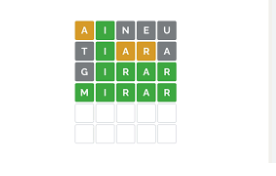
Indian Rummy, a popular card game known for its strategic depth and social appeal, has deep roots in Indian culture and has gained widespread popularity both domestically and internationally. Here’s a detailed article about Indian Rummy:
What is Indian Rummy?
Indian Rummy is a card game that originated in India and is a variant of the original Rummy game. It is typically played with two decks of cards with jokers and involves forming valid sets and sequences from 13 cards. The game requires skill, strategy, and a good understanding of card combinations.
Origins and Evolution
Indian Rummy has its roots in traditional card games like Conquian and Gin Rummy, which were brought to India during the colonial period. Over time, local variations emerged, incorporating unique rules and gameplay mechanics that distinguish it from its Western counterparts.
Gameplay Basics
The objective of Indian Rummy is to arrange 13 cards into valid sets and sequences. A set consists of three or four cards of the same rank but different suits, while a sequence comprises three or more consecutive cards of the same suit. Players draw and discard cards in turns to improve their hand and minimize points.
Various Indian Rummy variants:
1. Points Rummy
Points Rummy is the most common variant of Indian Rummy, known for its fast-paced gameplay. Players compete to win cash chips with each game lasting just one deal. The winner takes all chips from losing players based on the points they’ve accumulated.
2. Pool Rummy
In Pool Rummy, players contribute to a pool at the start, and the game continues until players reach a pre-determined score or are eliminated by reaching the maximum allowed points. It’s played in two formats: 101 points and 201 points.
3. Deals Rummy
Similar to Points Rummy, Deals Rummy is played for a pre-decided number of deals. At the end of each deal, players settle their scores, and the player with the lowest cumulative score at the end of all deals wins.
4. Indian Rummy 500
Indian Rummy 500 is a variant where the game is played with 500 points as the target score. Players must meld their cards into sets and sequences to reduce their points. The player who reaches 500 points first loses, and others are declared winners.
5. Rummy Tournaments
Rummy Tournaments gather players from various skill levels to compete for a grand prize. These tournaments can be of different formats, including Points, Pool, and Deals Rummy, adding an extra layer of strategy and competitiveness.
8. Kalooki Rummy
Kalooki Rummy, also known as Jamaican Rummy, incorporates elements of Contract Rummy where specific combinations must be formed in each hand. Players accumulate points across multiple rounds to determine the winner.
9. Indian Marriage Rummy
Indian Marriage Rummy involves forming specific combinations called ‘marriages’—pairs of cards from the same suit and rank. This variant requires players to meld cards strategically to achieve the required combinations.
10. Canasta
Canasta is a rummy variant that originated in Uruguay and gained popularity in the United States. It involves forming melds of at least three cards of the same rank and can include wild cards, adding a layer of complexity to traditional rummy gameplay.
11. Ten Card Rummy
Ten Card Rummy is a quick variant where players are dealt ten cards each, and they must form valid sets and sequences. It’s a shorter, more intense version of the game suitable for quick rounds.
12. Rummy Drop
Rummy Drop is an innovative online variant where players compete against the clock to clear the board of cards by forming valid sets and sequences. It combines elements of speed and strategy.
Strategy and Tips:
Understanding Melding: Focus on creating pure sequences first, then move to sets and impure sequences.
Observing Opponents: Keep an eye on discarded cards and melds to gauge opponents’ strategies.
Discarding Wisely: Avoid discarding cards that can help opponents complete their melds.
Calculating Risk: Be mindful of picking cards from the open deck versus the closed deck to minimize points.
Conclusion:
Indian Rummy’s versatility lies in its various engaging variants, each offering a unique challenge and strategy. Whether you prefer the fast-paced Points Rummy or the strategic depth of Pool Rummy, there’s a variant for every player. Explore these variants, hone your skills, and enjoy the thrill of Indian Rummy in its many forms.
This comprehensive guide covers the essence of each Indian Rummy variant, highlighting their rules, gameplay dynamics, and strategic nuances. Whether you’re a novice or a seasoned player, mastering these variants can elevate your rummy experience to new height.






